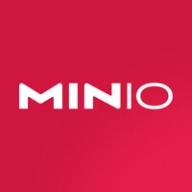


Dell ObjectScale and MinIO compete in the object storage category. Dell ObjectScale appears to have the upper hand with its comprehensive integration and stability features.
Features: Dell ObjectScale excels in its integration with Dell EMC products, supports the S3 protocol, and offers both hardware and software solutions. Its stability and competitive pricing enhance its appeal. MinIO is appreciated for its coding bit rot protection, ease of use, and comprehensive API support, along with its high-performance object retrieval ability.
Room for Improvement: Dell ObjectScale could improve disaster recovery, performance, and technical support. It also needs to support broader integrations and enhance documentation. MinIO needs expanded multi-tenancy support, enhanced documentation, and better monitoring options alongside improved scalability and performance for large data sets.
Ease of Deployment and Customer Service: Dell ObjectScale is predominantly deployed on-premises and in public cloud environments, offering a stable experience with generally satisfactory customer service. MinIO is flexible across private, hybrid, and on-premises setups, but lacks in documentation support, complicating deployment processes. Customer service details for MinIO are sparsely documented, challenging comparative support analysis.
Pricing and ROI: Dell ObjectScale is often considered expensive but offers ROI through integration and scalability, emphasizing a bundled hardware-software approach. MinIO, being open-source, offers a cost-effective alternative with no licensing fees, with enterprise solutions incurring costs, allowing for a cheaper initial investment while offering an enterprise option for support.
| Product | Market Share (%) |
|---|---|
| MinIO | 15.6% |
| Dell ObjectScale | 5.5% |
| Pure Storage FlashBlade | 5.5% |
| Other | 73.4% |


| Company Size | Count |
|---|---|
| Small Business | 11 |
| Midsize Enterprise | 11 |
| Large Enterprise | 21 |
| Company Size | Count |
|---|---|
| Small Business | 12 |
| Midsize Enterprise | 12 |
| Large Enterprise | 11 |
| Company Size | Count |
|---|---|
| Small Business | 11 |
| Midsize Enterprise | 4 |
| Large Enterprise | 9 |
FlashBlade is the industry’s most advanced scale-out storage for unstructured data, powered by a modern, massively parallel architecture to consolidate complex data silos (like backup appliances and data lakes) and accelerate tomorrow’s discoveries and insights.
Dell ObjectScale is a next-generation S3 object storage platform known for scalability, performance, and efficiency. It integrates with Dell EMC products, combining hardware and software for seamless user experience in the AI era.
Dell ObjectScale implements the S3 protocol, integrating smoothly with Dell EMC solutions like ISILON. Its architecture supports data compression and interoperates with multiple protocols for enhanced performance. Enterprise features include immutability, geo-replication, and user-friendly management. However, it needs better integration with other systems, enhanced security, and disaster recovery. Write performance and scalability improvements, competitive pricing, and documentation enhancements are key areas for progress. The interface could be more straightforward, with more remote management features and native analytics.
What features does Dell ObjectScale offer?Industries leverage Dell ObjectScale for cloud-based object storage, archiving, and backups. It's favored for unstructured data management, CCTV integration, and document archiving. Strong in data analytics, it integrates well with high-capacity applications, enhancing data retention strategies across fields.
MinIO is an open-source object storage system. It is designed to efficiently store and retrieve unstructured data, such as photos, videos, and backups. MinIO can be used as a standalone object storage server or as part of a larger system, such as a data lake or a private cloud, and can be deployed on-premise, in the cloud, or in a hybrid environment, making it a flexible storage solution for a variety of use cases.
MinIO’s features include erasure coding, bitrot protection, and checksum validation, which help ensure data integrity and reliability. The solution’s multi-tenancy support makes it ideal for multi-user environments. MinIO’s edge computing tools enable data storage and processing closer to users' locations, reducing latency and improving performance. MinIO can easily scale to accommodate storage and power demands, making it ideal for use in large-scale, data-intensive environments.
MinIO Benefits and Features:
MinIO offers several key benefits and features for organizations looking for a scalable and high-performing object storage solution:
Reviews from Real Users
MinIO stands out among its competitors for a number of reasons. Several major ones are its flexibility, integration options, and performance.
Süleyman Fazıl Y., a senior software engineer at a tech services company, writes, “The most valuable features are that MinIO is open, it works on-premise, and is compatible with the Amazon industry which is great for finding compatible libraries in many languages which is very good for developers.”
Rebecca S., CTO at NIASE, says, “MinIO is much improved over the prior solution, updates are simple to apply, and we anticipate that future capacity requirements will be easier to meet. Our customers are using this solution to retrieve tens of thousands of objects (documents and files) per hour, and MinIO seems to be able to keep up with it.”
We monitor all File and Object Storage reviews to prevent fraudulent reviews and keep review quality high. We do not post reviews by company employees or direct competitors. We validate each review for authenticity via cross-reference with LinkedIn, and personal follow-up with the reviewer when necessary.